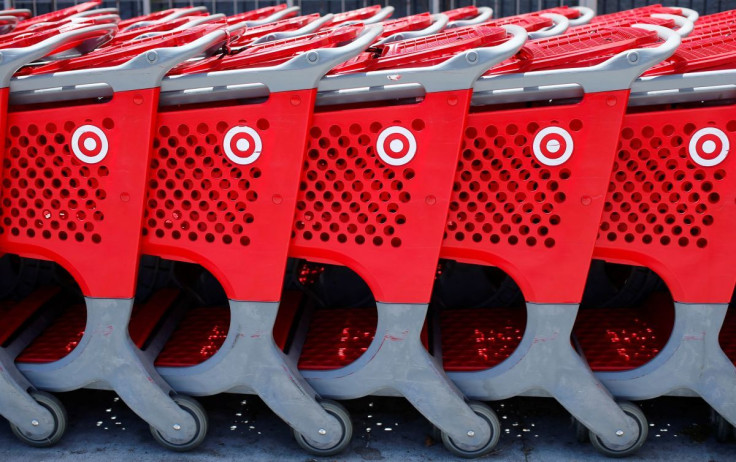Target Rides A New Retail Trend That Beats Amazon

Target is riding a new retail trend that beats Amazon — the merger of online and offline retailing, which changes the game for the industry.
Target is getting bigger and more profitable, shaking off the many challenges competition from online retailers, the pandemic, supply chain bottlenecks and labor shortages have brought its way. This week, the popular retailer announced fourth-quarter financial results that beat analyst estimates.
Total sales reached $106 billion, after growing nearly $28 billion, or more than 35%, over the past two years. Comparable sales increased 8.9%, on top of 20.5% in Q4 2020. In addition, all five core merchandise categories delivered double-digit comparable sales growth in 2021, on top of robust growth in 2020.
Adjusted EPS came in at $3.19 for the fourth quarter, up from $2.67 in 2020. Total 2021 adjusted EPS came in at $13.56 for the entire year, up from $9.42 in 2020.
Target's fourth-quarter solid performance follows the strong performance of several quarters "reinforcing the durability" of its business model, as its chairman and CEO Brian Cornell put it in a statement following the earnings release.
"Our strong fourth-quarter performance capped off a year of record growth in 2021, reinforcing the durability of our business model and our confidence in long-term profitable growth," he said. "As we look ahead, we'll keep investing and delivering on all that has earned the loyalty and trust of our guests. That starts with our outstanding team and includes continued differentiation through affordability, assortment, ease and convenience."
Target's business model has several elements that have helped the company capture the hearts and wallets of American shoppers. First is the "one-stop-shop" feature, which allows shoppers to buy everything, from groceries to medicine and apparel in one place.
Then there's the element of combining online shopping with offline shopping. Customers order merchandise online and pick it up either inside the local stores or on the curbside. More than 95% of Target's fourth-quarter online sales were fulfilled by its stores, giving Target a competitive edge over Amazon during the holiday season.
"Target won over the holidays over Amazon," says national retail expert and United National Consumer Suppliers CEO Brett Rose. "As the world opened back up, people wanted to get out, and it was inevitable that in-store sales increased. This is not the last we will see of these kinds of numbers. Traditional brick-and-mortar is coming back hard and strong off the heels of shutdowns, limited capacity and a mad rush to all things online to avoid COVID."
The merging of online and offline sales turns traditional retail stores from a liability — de facto storefronts for Amazon — to the precious assets they were before Amazon made a foray into retailing.
“Target’s omnichannel retail strategy has played a major part in its current in-store success,” says Joe Ayyoub, chief revenue officer at Search.io . “It’s effectively merged the online and offline retail experience that shoppers have grown accustomed to during the pandemic. In order to compete, other major retailers [Amazon included] will also have to invest in e-commerce and online practices that will support in-store sales."
"Online-only retail cannot compete with the true shopping experience of walking into a store," adds Rose. “No matter how hard they try, it is not something that can be replicated online. This, in conjunction with same-day delivery and curbside pickup, boosted Target's sales."
Rick Watson, e-commmerce expert and founder of RMW Commerce Consulting, thinks Target is best suited to ride the new retail trend, and deliver superior returns to Wall Street.
"Amazon has an online-driven retail approach. Target has a stores-driven retail approach -- both are incredibly innovative in their spheres and using it to drive growth and market share gains," he said. "However, Target is doing all that with margin improvement, too, whereas Amazon is content not to make much money. Also of note, Walmart is executing well, borrowing from both approaches, which a lot of companies cannot do, but a company of Walmart's size can afford to do that."
Wall Street is noticing. Over the last 12 months, Target's shares have gained 19.2%, compared to 4.67% for Walmart and 12.99% for the S&P 500.
Editor’s note: Panos Mourdoukoutas owns shares of Target.
© Copyright IBTimes 2024. All rights reserved.





















